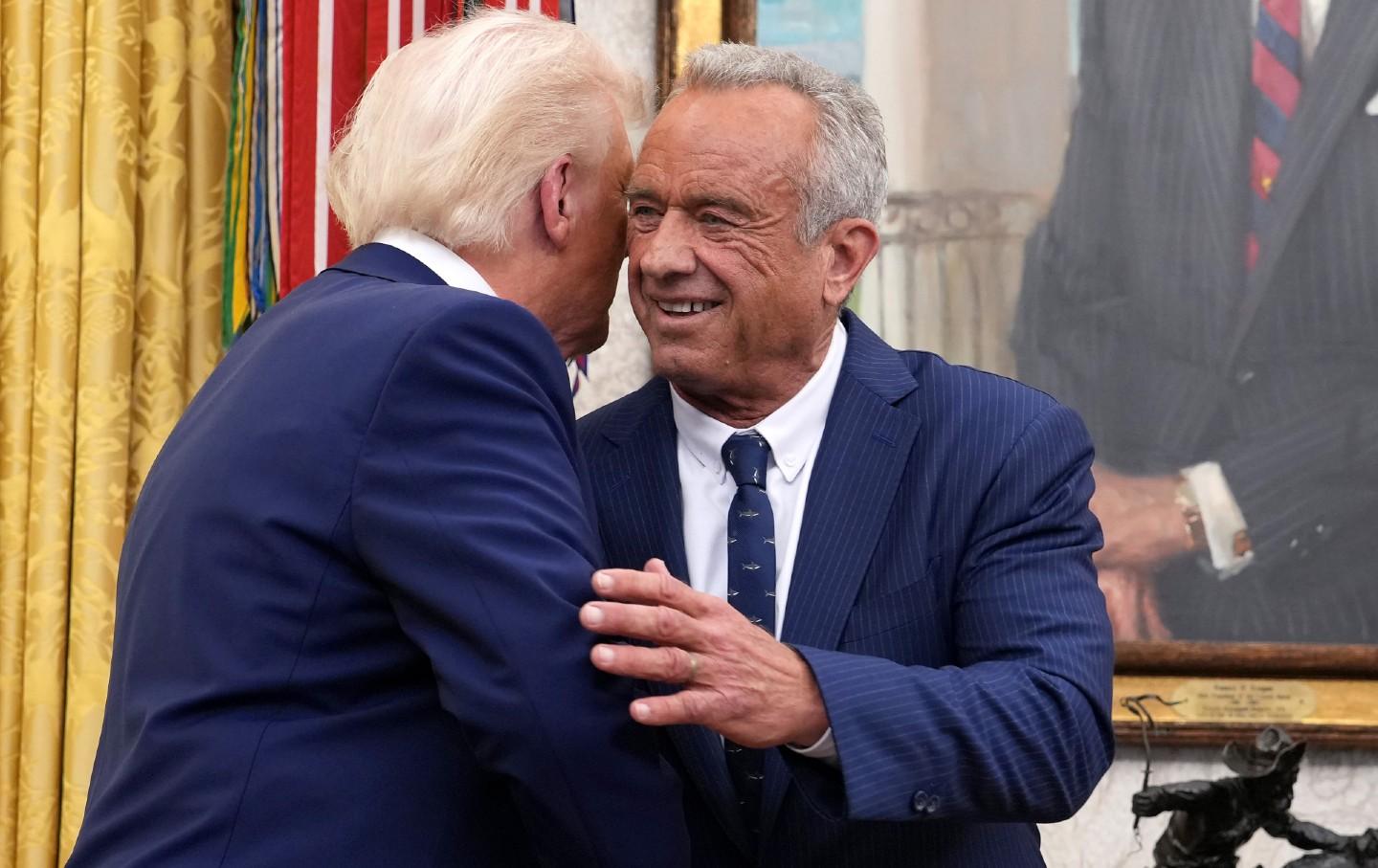The Kennedy name has long held a significant position in American politics, but opinions differ on whether it represents liberalism or oligarchy. In recent events, former President Donald Trump, in his second term, has actively sought to incorporate the Kennedy name into his legacy. This comes as Elon Musk, acting as an influential figure in U.S. politics, has been engaging with global leaders like Indian Prime Minister Narendra Modi, leaving Trump with ample time to focus on legacy-building.
Trump’s efforts to align with the Kennedy brand have become evident. Robert F. Kennedy Jr. was recently confirmed by the Senate as Secretary of Health and Human Services, marking a notable partisan division, with all Democrats and Republican Senator Mitch McConnell voting against the nomination. RFK Jr., previously an anti-Trump Democrat, is a prominent figure from the Kennedy family, known for its Democratic affiliations.
Furthermore, Trump has appointed himself as chairman of the John F. Kennedy Center for the Performing Arts in Washington. This move is part of a broader restructuring, where he replaced the existing bipartisan board members with loyalists. The newly constituted board features figures close to Trump, such as his Chief of Staff Susie Wiles, Dan Scavino, a longtime aide, and Usha Vance, wife of Vice President JD Vance.
In another significant step, Trump issued an executive order to declassify documents related to the assassinations of JFK, RFK, and Martin Luther King Jr. These actions reflect Trump’s desire to associate himself with the Kennedy legacy. The Kennedy name, deeply rooted in American history, still holds considerable influence. Despite RFK Jr.’s embrace of Trump, most of the Kennedy family members remain liberal Democrats and have voiced opposition to Trump’s use of their family’s legacy.
The Kennedy family’s political prominence has waned since the passing of Edward Kennedy in 2009. However, the family’s influence over American political liberalism has diminished. Notably, Joseph Kennedy III, a grandson of JFK, lost a Massachusetts Democratic Senate bid, signaling this change in the family’s political fortunes.
The Kennedy name, synonymous with both mythology and politics, now contends with appropriation attempts by figures like Trump. Despite the political ambiguity of the Kennedy legacy, Trump finds alignment in JFK’s transformation of wealth and fame into political influence. This echoes Trump’s outsider persona and approach to governance, bypassing traditional bureaucratic channels.
Historian Garry Wills highlights JFK’s personal, charismatic political style, driven by a loyalist team, which draws parallels to Trump’s strategies. The intricacies of JFK’s governance, including executive orders and circumventing bureaucratic obstacles, mirror current practices by figures such as Elon Musk.
While JFK and Trump are not identical, the Kennedy legacy’s complexity provides limited resistance to Trump’s appropriation efforts. The positive aspects of the Kennedy legacy, like civil rights advancements, stand on their own merit rather than on the family’s association. Ultimately, the Kennedy name serves as a cautionary symbol of elite impunity and oligarchy, emblematic of broader issues in American politics.
